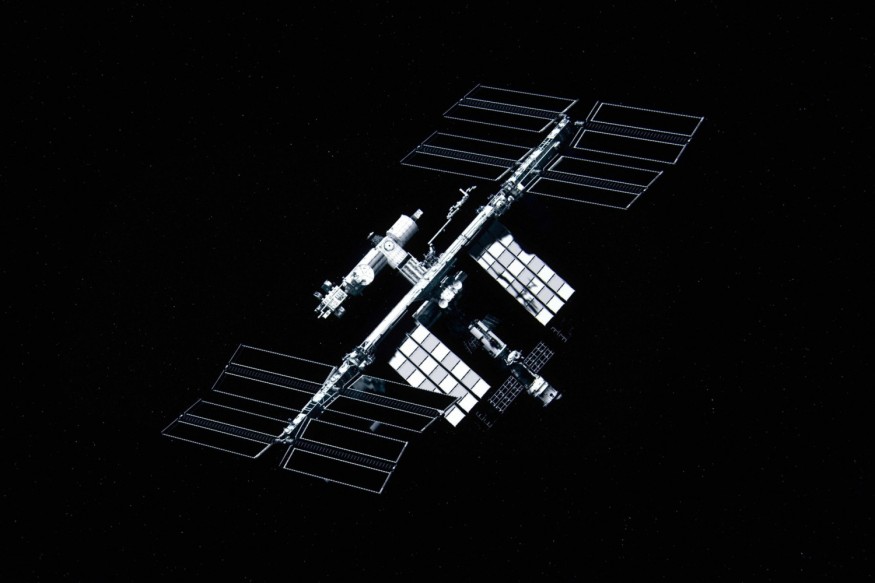The International Space Station (ISS) has served as an astronauts' home away from home and a scientific study center for over two decades. In addition, this floating orbit represents the collaboration between Roscosmos in Russia and the National Aeronautics and Space Administration (NASA) in the United States.
The future of the floating laboratory is now in danger. After 2024, Russia will decide to leave the ISS and concentrate on developing its own orbital base. After speaking with the Russian president, the space agency made the statement.
Reports may have suggested that investors view this less as a surprise and more as "an opportunity."
Roscosmos 'Serious' About Leaving NASA, ISS Behind
According to Space Florida's vice president Dale Ketcham, the pressure is on as the aging ISS is scheduled to retire in 2030. To give the private sector time to take over, NASA intended to keep the ISS operating until 2030.
Ketcham stated that Vladimir Putin, the president of Russia, is "serious" about removing Roscosmos from the International Space Station this time.
"We have to decide. Do we attempt to quickly try to salvage the existing ISS? I think we can do that relatively quickly, or do we more aggressively accelerate the program the country was on to commercialize space stations," Ketcham said per Fox35 Orlando.
According to Space Florida's vice president, this crisis will present a fantastic commercial opportunity to the private sector. Ketcham hoped that the space companies would understand that it is not yet known whether or not Congress would be able to provide funds and reallocate existing resources to support and encourage the building of those commercial space stations.
ALSO READ: Russia Not Leaving International Space Station Yet, Roscosmos Will Still Work With NASA Until 2028
After all, it was anticipated that the International Space Station (ISS), which launched in 2001, would operate for around 15 years. Now that it's 2022, it's clear that the original plan has been altered. However, Russia had been expressing interest in abandoning the project, detaching its modules, and using them as the foundation for a new, all-Russian station as early as 2016 (the ISS's intended "expiration date").
The lease on ISS has been continuously extended, first through 2025, then 2028, and most recently all the way out to 2030, thanks to ongoing negotiations between the US, which wants to use ISS to train private companies to build their own stations, and Russia, which up until 2020 was making a tidy profit selling "seats" on Russian rockets.
The Russian government has insisted for years that it would prefer to spend its money on a station owned by the country and known as the Russian Orbital Service Station. Still, former Roscosmos CEO Dmitry Rogozin has complained that maintaining the ISS costs "colossal money."

US Space Companies That May Replace Roscosmos
NASA would have to locate a US business that could power the space station's engine, The Motley Fool wrote. Here are the companies that would probably step up and replace Roscosmos.
The first company that comes to mind is SpaceX. Reusable launch rockets, communications satellites, and lunar landers are just a few of the space difficulties that Elon Musk's innovative space enterprise has successfully solved. However, since SpaceX is a privately held corporation, even if it secures an ISS contract, investors have little prospect of making money from it.
Fortunately, there are two more appealing publicly traded space enterprises. Boeing, for instance, built the International Space Station for NASA in the 1990s and 2000s and is likely the company with the most in-depth knowledge of the space station. The Starliner, a spaceship developed by Boeing, has been tested in flight and is (nearly) human-rated. It can reach the International Space Station (ISS) and use its engines to course-correct the space station temporarily while engineers work on a more long-term fix.
Northrop Grumman is another publicly listed space business that would have a fair chance of obtaining a Zvezda successor contract (NOC -0.68 percent ). Northrop's Cygnus supply ships can reach the ISS like Boeing's Starliner. NASA intends to test the course-correction capability of Cygnus on a future voyage.
Even more impressively, Northrop was awarded a contract to construct a habitation module for NASA's Lunar Gateway space station, whose design was inspired by a Cygnus cargo ship. And it makes sense that Northrop would be first in line to obtain a contract to build replacement modules for NASA's aging space station as well if NASA believes Northrop can build the future space station's modules.
It's difficult to determine how serious Russia is about leaving the ISS earlier than planned. However, if it does, there's a good chance NASA will look for a temporary solution to keep ISS flying for a few more years given the ambitious plans several space companies have announced in recent years to build their own space stations - but to first practice space station operations and procedures aboard ISS.
If that turns out to be the case, SpaceX, Boeing, and Northrop are all strong possibilities of receiving a new ISS contract.
RELATED ARTICLE : Roscosmos Is Officially Leaving NASA, International Space Station by 2024, Tells Vladimir Putin Russia Will Make Own Orbiting Lab
Check out more news and information on Space in Science Times.










